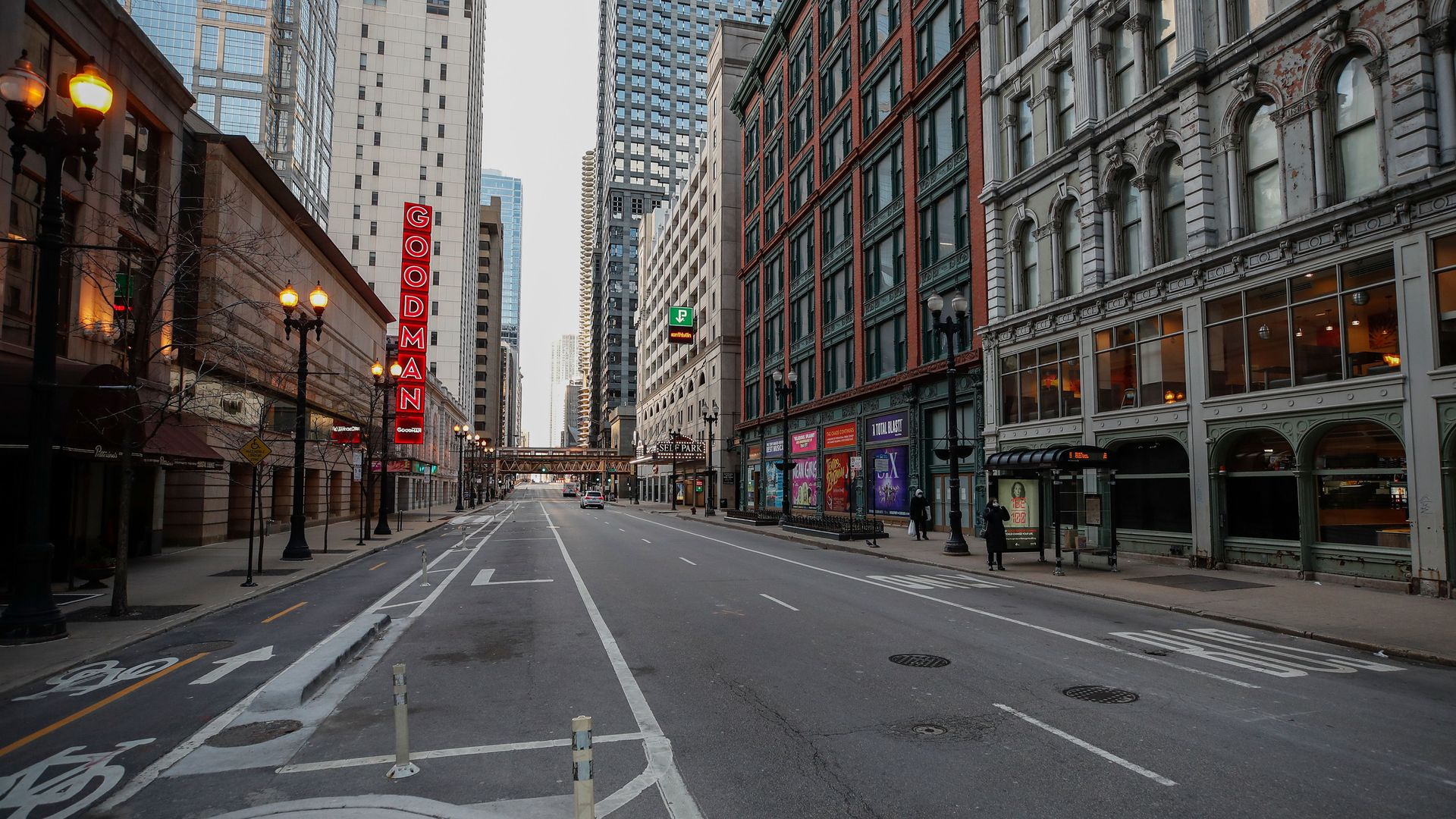Mayors ask Congress for $250 billion in local coronavirus relief
Add Axios as your preferred source to
see more of our stories on Google.

A woman waits for a bus on a nearly empty street in downtown Chicago. Photo: Kamil Krzaczynski/AFP via Getty Images.
U.S. mayors have banded together to ask Congress for $250 billion in direct funding to help cities deal with the enormous costs of fighting the coronavirus pandemic while also facing significant revenue loss from shutdowns of local economies.
The big picture: Last month's CARES Act allocated $150 billion to state and local governments, which was $100 billion shy of the ask from the U.S. Conference of Mayors.
The catch: There were restrictions on that money that mayors say prevent it from meeting cities' needs.
- Only municipalities with over 500,000 residents are eligible for the funding, leaving out the vast majority of cities and towns. That requirement represents only about 14% of the total U.S. population and fewer than 1% of municipalities, said Kathy Maness, a town council member in Lexington, South Carolina — a state in which no city is large enough to qualify.
- While states received funding, cities say much of that funding went to counties, and that they need direct money without having to go through state governments.
- While the money was allocated to help cities deal with coronavirus-related costs, that does not help them shore up their budgets due to the pandemic's huge blow to their usual revenue sources.
What they're saying: On a call with reporters Tuesday, mayors acknowledged they don't know if $250 billion will be sufficient to keep municipal operations afloat.
- "We hope that's enough," said Bryan Barnett, mayor of Rochester Hills, Michigan, and president of the U.S. Conference of Mayors. "It's so early in the process in understanding the midterm and long-range impacts. We're not sure how quickly things will be able to ramp up" after stay-at-home orders are lifted.
- "Our cities are hurting and our residents are scared, our business owners are facing unprecedented uncertainty, and our front line health care workers are overwhelmed," said Greg Fischer, mayor of Louisville, Kentucky. "The costs of the actions to take care of our cities right now are blowing massive holes in our budgets."
- "If cities do not receive direct funding, it will be enormous drag on the recovery because we will not have the revenue to keep people working," said Nan Whaley, mayor of Dayton, Ohio, who noted a large number of city staffers not directly related to the coronavirus response have been furloughed.
Go deeper: The next economic crisis will hit states and cities
